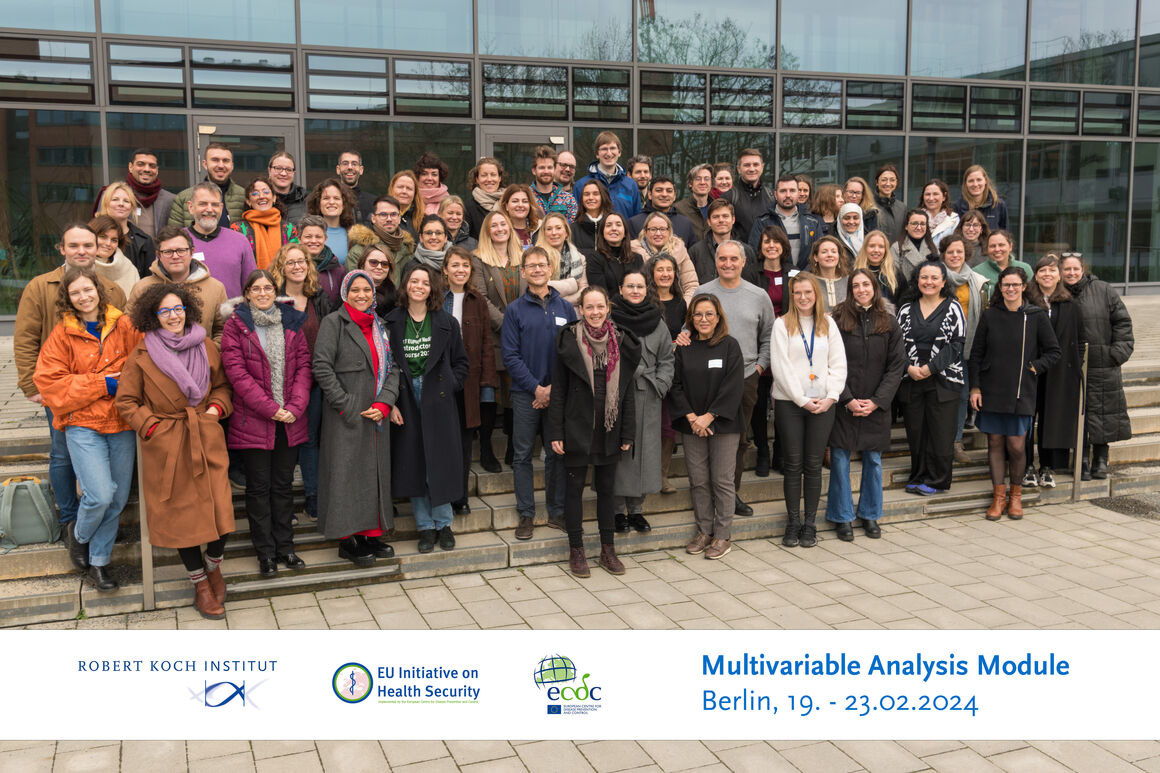Robert Koch Institute hosts Multivariable Analysis Module
The Multivariable Analysis Module, held from 19–23 February 2024, strengthened public health practitioners’ epidemiological data analysis skills.
The Multivariable Analysis Module, a collaborative effort between the Robert Koch Institute, MediPIET and its associated fellowship programme, was delivered to EPIET/EUPHEM, PAE and MediPIET fellows.
The intensive course provided participants with comprehensive insights into various types of univariable and multivariable regression models, including linear, logistic, conditional logistic, Poisson, negative binomial and Cox regression models.
Through engaging lectures, case studies and exercises, attendees enhanced their skills in formulating research questions, utilizing Directed Acyclic Graphs (DAGs) to identify confounding factors, and interpreting regression model results.
The module’s curriculum centred on core competencies relevant to epidemiological data analysis, enabling fellows to conduct analytical epidemiological investigations, effectively report and present study results, and identify appropriate target groups for recommendations.
The module drew on the expertise and experience of nominated external experts from across Europe and the MediPIET partner countries.
Moving forward, fellows are expected to apply their newfound skills to inform policy decisions, effectively communicate public health evidence and contribute to the global fight against public health threats.

Multivariable regression modelling
Regression modelling is a common method used in epidemiology to study diseases. It helps researchers find connections between different factors and the likelihood of a disease occurring. Multivariable regression looks at how one disease outcome is influenced by multiple factors, such as health, demographics, behaviour, and environmental exposures.







